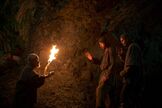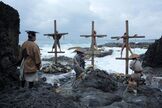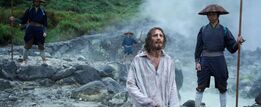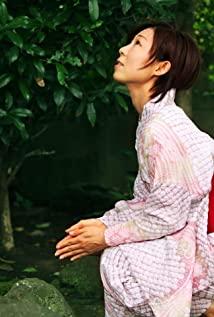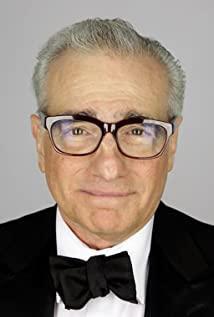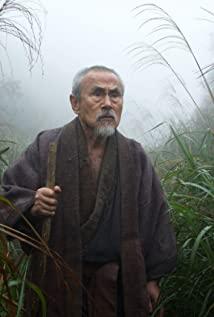The story of "Silence" is quite simple. The two missionaries go to the forbidden area to find the missing priest. The first half of the film is narrated by Father Ferreira, describing the tragic situation of foreign missionaries in Japan, followed by the narration by Lotri Brother took over, and described the local customs and oppression through what he saw and heard when he smuggled to Japan. The oppression of foreign beliefs by those in power is like seeing a cancerous tumor, eager to remove it to avoid future troubles, while Lotrigo’s silence about praying to God, or the silence of everyone when pagans are suppressed, is an illusion. It becomes a silent question again and again, just like the unanswerable doubts that the movie has sprouted in the hearts of the audience. How much torture must people endure before they collapse and give up their beliefs? If you finally succumb to death threats, do you turn your back on God in your heart? Should we protect the ideas in our hearts at all costs? If it is out of intolerance and goodness to renounce faith, does God forgive him out of mercy? Why is the essence of religion a torture of the self? The movie does have the image of Lotrigo and Jesus as a contrast. Lotrigo's preaching journey in this cruel land is like the pagan persecution of Jesus in Rome, especially the reflection in the water. The astonishing image of the brother's face and the portrait of Jesus overlapped, the stream of consciousness intertwined between the real and the virtual, and finally evolved into a scene where Lotrigo was insane.
View more about Silence reviews




